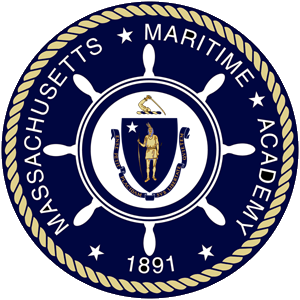MT-3122
Radar Observer Certification
Course Description
This course is designed to meet all RADAR Observer knowledge-based assessments and the twelve performance-based assessments, which form part of the requirements for Officer in Charge of a Navigation Watch (STCW Table A-II/1). Students who successfully complete the course will be able to recognize when radar should be in use, select a suitable mode and range setting for the circumstances, set the controls for optimal performance, and will understand the accuracy limitations of the equipment in detecting targets. Students will also be able to compare the radar display with the chart, select suitable land targets, and use these targets to fix position. In addition, students will understand the need to maintain a continuing plot of ship targets that may pose a potential threat of collision, be able to derive from the plot the necessary information about the courses, speeds and closest points of approach of other ships, enabling timely action in accordance with 72-COLREGS and Inland Rules and preventing a close-quarters situation. This course satisfies the requirements for a USCG RADAR endorsement. Classwork is supplemented by practical weekly labs in the Integrated Navigation Lab (INL) simulator with students working individually at each student station. Classwork is supplemented by practical weekly labs in the Integrated Navigation Lab (INL) simulator with students working individually at each station. [Lab time required]
This course consists of two 1-hour lectures and one 2-hour lab per week for a semester with practrical assessments and a comprehensive final examination.
Entrance requirements
Successful completion of MT-2121 Deep Sea Navigationand * MT-2161 Rules of the Road*.
This course is a pre-requisite for MT-3222 Automatic Radar Plotting Aids (ARPA) and MT-3371Sea Term III / MT-3372 Commercial Sea Term .
Learning Objectives
Demonstrate knowledge and understanding of the following STCW elements:
- OICNW-A2.5 Knowledge of blind pilotage techniques
- OICNW-A3.2 Ability to operate and to interpret and analyse information obtained from radar
- OICNW-A3.2 detection of misrepresentation of information, false echoes, sea return, etc., racons and SARTs
- OICNW-A3.2 application of the International Regulations for Preventing Collisions at Sea, 1972, as amended
- OICNW-A3.2 plotting techniques and relative- and true- motion concepts
- OICNW-A3.2 parallel indexing
Demonstrate proficiency in the following skills:
- OICNW‑1‑2B Fix by two ranges
- OICNW‑1‑2C Fix by tangent bearings of two identified objects
- OICNW‑3‑1A Set up and maintain radar display
- OICNW‑3‑1B Switch display modes
- OICNW‑3‑1C Identify false echoes, sea return, racons and SARTs
- OICNW‑3‑1D Determine range and bearing
- OICNW‑3‑1F Determine DRM, SRM, CPA, and TCPA
- OICNW‑3‑1G Detect speed and course changes of other ships
- OICNW‑3‑1H Change course to control target DRM
- OICNW‑3‑1I Change speed to control target DRM
- OICNW‑3‑1J Determine true course and speed of target vessels
- OICNW‑3‑1K Parallel indexing
###Topics
####Lecture
- Course Introduction & Policies
- Plotting Range and Bearings
- Relative Motion
- Constructing Relative Motion Lines
- CPA, TCPA, Bow Crossing
- Plotting True Course & Speed
- Determining target True Course, Speed, target Aspect
- Apply Course & Speed Change for Desired CPA
- Application of Course or Speed Change to Other Contacts
- Returning to Original Course & Speed when past & Clear
- History & Fundamental Principles of RADAR Systems
- Radar Navigation
- Parallel Indexing
- Function & Adjustment of Radar Controls
- Function and Setting of Radar Components
- Factors Affecting Radar Detection
- Aids to Radar navigation
- Factors Causing Faulty Interpretation
- Unusual Affects
- Effects or Weather
- Ice Detection
- Radiation Hazards
- Magnetic Compass Safe Distance
- Radar Log
- Relationship of Navigation Rules to Radar Use
- IMO {Performance Standards
- Factors Determining Min and Max Range, Bearing and Range Resolution
- Final Examination
####Lab
- Introduction to Radar Controls
- Plotting Relative Motion, CPA, TCPA
- Plotting Course, Speed & Aspect
- Plotting Course & Speed Changes in Accordance with Rules of the Road
- Execute Course & Speed Change
- Plotting Course & Speed Changes – Application of New Course or Speed to Other Targets
- Introduction to radar navigation
- Radar Navigation & Parallel Indexing
- Radar Navigation (with Traffic)
- Live Radar & faulty Interpretation
- SARTS & RACONS
Other Objectives
- Course is designed to meet all the RADAR Observer knowledge based assessments and twelve performance based assessments which form part of the requirements for Officer in Charge of a Navigation Watch
- Explain the theory behind Radar technology
- Recognize when Radar should be in use
- Selection of suitable mode and range setting for the circumstances
- Ability to set the controls for optimal performance
- Awareness of the limitations of the equipment in detecting targets in terms of accuracy
- Ability to compare the Radar display with the chart
- Selection of suitable land targets and use of these targets to fix position
- Awareness of the need to to maintain a continuing plot of ship targets which may pose a potential threat of collision
- Ability to derive from the plot the necessary information about other ship’s course, speeds, and closest points of approach to enable action to be taken in ample time and in accordance with the COLREGS to prevent a close quarters situation from arising.
